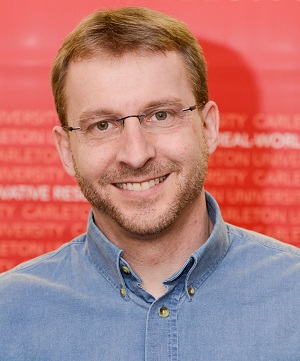The seminar will be divided in two parts, with each presentation lasting 30 minutes followed by 15 minutes discussion.
We ask all participants to please register using the link below. The seminar can be followed either in person or on Zoom.
Presentation 1: "Climate change and the psychological development of children - a life course perspective"
Climate change is driving a range of weather-related stressors that are affecting the health and wellbeing of global populations, but the effects on the psychological development of children remain under studied. In this talk, I use a developmental life course perspective to show how climate-related stressors can undermine the healthy psychological development of children from conception onwards. These exposures can operate with additive, interactive and cumulative effects to increase risk across the life course. I then discuss the domains of psychological functioning that could be impacted and how this burden can conceptualized and measured. A general discussion about climate change and the mental health of children will follow.
About the speaker

Francis Vergunst is an associate professor at the Department of Special Needs Education at University of Oslo. His research lies in two domains (1) the development, course and outcomes of childhood behavioral disorders and (2) how climate change is affecting the healthy psychological development of children. He uses longitudinal quantitative methods from developmental psychopathology and psychiatric epidemiology with an emphasis on birth cohorts and administrative data. He completed postdoctoral training in the Research Unit on Children’s Psychosocial Maladjustment (GRIP) at university of Montreal and has PhD in psychiatric research from University of Oxford.
Presentation 2: "Unravelling the Paradox of Solitude in Childhood & Adolescence"
Never has it been more important to consider the causes and consequences of solitude for well-being and mental health. This presentation will describe a program of research that has explored the complex links between experiences of solitude and socio-emotional functioning in childhood and adolescence. This research includes an examination of: (1) both the costs and benefits of solitude; (2) different "reasons" why children and adolescents spend time in solitude; (3) the implications of spending too much versus not enough time alone; and (4) how these processes play out at different stages of development.
About the speaker

Robert Coplan is a Chancellor’s Professor in the Department of Psychology at Carleton University in Ottawa, Canada. He also holds international cross-appointments in Faculty of Education at Shanghai Normal University in China and the Department of Special Needs Education at the University of Oslo. His general research interests are in the areas of children’s socio-emotional functioning and developmental psychopathology. In particular, he has extensively examined the development of shyness, social withdrawal, and social anxiety in childhood and adolescence. Current research projects focus on the causes and consequences of solitude across development, the challenges faced by shy and anxious children at school, and the meaning and implications of social withdrawal across different cultures. His most recent books include the edited volume The Handbook of Solitude: Psychological Perspectives on Social Isolation, Social Withdrawal, and Being Alone (2nd Edition), and the authored book Quiet at School: An Educator’s Guide to Shy Children.
